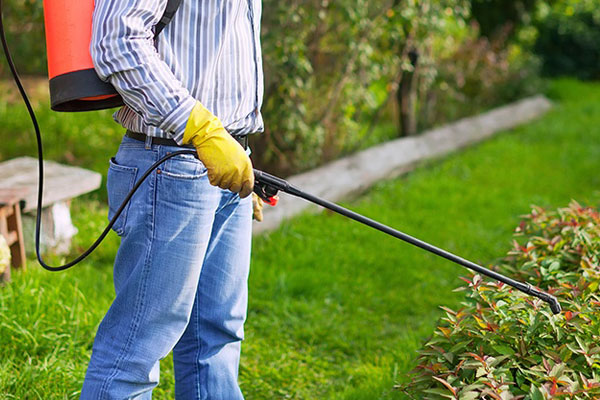So the best time to spray at home is early spring. During spraying in the spring, you can destroy nests and colonies because the number of pests is low, and if there are some then their locomotion is less. Treatment requires less work, making it more effective and longer-lasting. Usually, one procedure is sufficient. It is not a good practice to wait for the abundance of pests, which will increase the work with infestations. But if it’s summer and you notice that your home has more ants and beetles than in the past, you can spray and see effective results, because it’s never too late to spray.
Best time to spray Dandelions
Dandelions can be a severe problem in lawns and gardens. This broadleaf plant’s bright yellow flowers can sprout all over your landscape, ruining the hard work you put into keeping it healthy. Dandelion prevention is difficult because you usually don’t realize you have a problem until the dandelions bloom.
The best time to spray on dandelions is in September after the dandelions have bloomed and carry carbohydrates from leaves to roots. The best time in a year to apply herbicide is in May or when the temperature is above 60 degrees Fahrenheit.
Regardless of when you apply the herbicide, try to choose a dry, calm day and make sure no rain is predicted for 48 hours. Apply the herbicide directly to the dandelions, keeping the sprayer close to the ground to avoid the valuable plants’ drift. Before applying any herbicide, read and follow all safety and application directions on the herbicide label.

Best time to spray Wasp nest
The best time to plan an attack on wasps is at dawn or dusk when these insects are less active. And always remember to wait 24 hours to remove the nest to make sure most insects are dead or have escaped from the nest.
Additionally, you can prevent wasps from entering your home by using foaming spray around typical entry points, including gaps around outdoor plumbing and vents, cracks and crevices in the base, and along window sills and ledges.
Best time to spray for mosquitoes
The best time to kill adult mosquitoes is at dusk when they are most active, wandering, and looking for food. Mosquitoes feed on human or animal blood. Aerosol mist primarily targets flying mosquitoes, so spraying timing is critical.
Mosquito control agencies use truck-mounted foggers to apply ultra-low volume spray (ULV) insecticides. ULV spray units release very fine aerosol droplets (mist) that remain in the air and kill mosquitoes on contact. The amount of pesticide sprayed by ULV devices is small compared to the treated area, typically around 3-5 ounces per acre, which minimizes exposure and risks to people who pollute the environment. Some communities have heat mists, which use an oil carrier heated to disperse the pesticide in a thick smoke-like fog.
Best time to spray lawn for weeds
If you are fighting a weed infestation in your vegetable garden, flower garden, or yard, you are not alone. While manual and cultural practices such as tillage and fertilization and irrigation can help control weeds, some gardeners choose to spray weed control over their problem. If you are following the chemical route of using herbicides, sprinkling them on your plants at the right time can help maximize your weed control success. Much depends on what type of weed killer you are using and when you spray it.
For best results, growers should time applying the weed control before the weed seeds begin to germinate, usually in early spring. Gardeners often reapply the weed control approximately eight weeks after the first spray to help with extremely invasive weeds such as crab grasses.
Best time to spray for Bugs
Pests increase when the temperature warms up because they multiply faster or wake up from dormancy. In early spring, you may see some bugs attacking your home again. The good news is that you can control your home by spraying it, but the effectiveness depends on the correct timing when you spray.
The best time to spray at home is in early spring because, during this time, you will have the opportunity to destroy nests and colonies when the number of pests is low. Living and traveling also increase the risk of bedbugs returning to your home. According to some pest control services, the peak season for bedbug infestations in August and September, when most homeowners return home from their trip.


